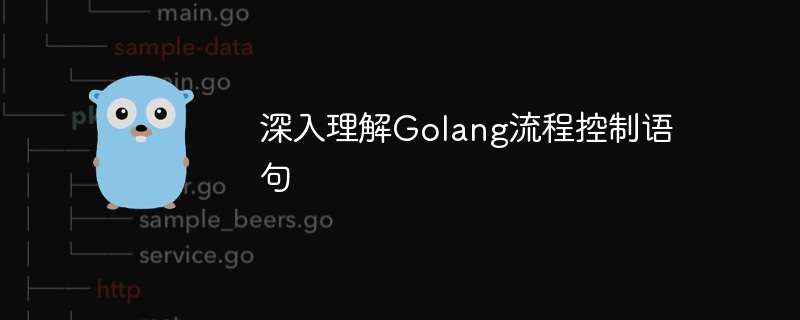
Go language provides a wealth of flow control statements for controlling the flow of program flow, including: conditional statements (if, switch); loop statements (for, while); practical cases: calculating factorials using if and for statements; others Flow control statements (break, continue, goto, defer).

In-depth understanding of Go language flow control statements
Flow control statements are the basic tools used to control the flow of program flow in programming. The Go language provides a wealth of flow control statements, including:
Conditional statements
if statements: used according to Conditionally execute code blocks.
if condition {
// 条件为 true 时执行的代码
} else {
// 条件为 false 时执行的代码
}switch Statement: Used to execute a block of code based on one of multiple conditions.
switch variable {
case value1:
// variable 为 value1 时执行的代码
case value2:
// variable 为 value2 时执行的代码
default:
// 其他情况执行的代码
}Loop statement
##for Loop: used to repeatedly execute a block of code.
for condition {
// 条件为 true 时执行的代码
}
for i := 0; i < 10; i++ {
// i 从 0 到 9 执行 10 次循环
}while Loop: used to execute a block of code as long as the condition is true.
while condition {
// 条件为 true 时执行的代码
}Practical case: Calculating factorial
The following is a Go language program for calculating factorial:package main
import "fmt"
func main() {
var n int
fmt.Print("请输入一个非负整数:")
fmt.Scan(&n)
if n < 0 {
fmt.Println("输入无效,必须是非负整数")
return
}
result := 1
for i := 1; i <= n; i++ {
result *= i
}
fmt.Printf("%d 的阶乘为 %d\n", n, result)
} statement checks whether the input is valid and uses a for loop to calculate the factorial.
The Go language also provides other flow control statements, including:
switch statement. The above is the detailed content of In-depth understanding of Golang flow control statements. For more information, please follow other related articles on the PHP Chinese website!